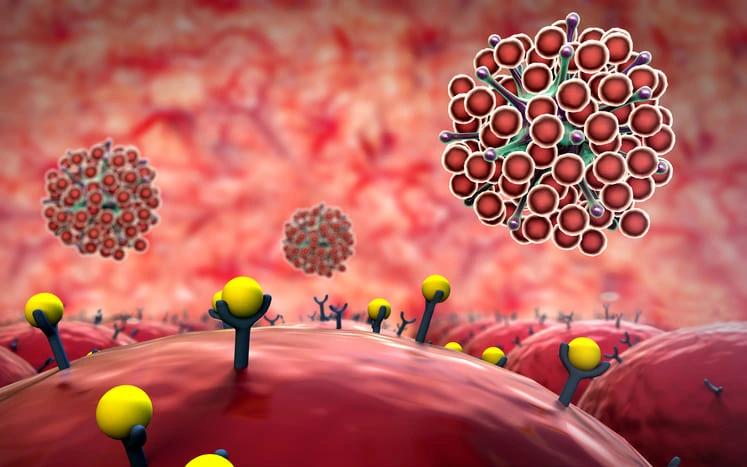KEY TAKEAWAYS
- The phase 1 trial of CM313 aimed to assess the safety and preliminary efficacy of CM313, an antiCD38 monoclonal antibody, in adult patients with RRMM.
- The primary endpoints were safety and tolerability for Part A and the overall response rate (ORR) for Part B.
- CM313, the antiCD38 monoclonal antibody, demonstrated preclinical antitumor activity in RRMM and relapsed/refractory lymphoma.
Malignancies such as relapsed/refractory multiple myeloma (RRMM) and relapsed/refractory lymphoma pose significant therapeutic challenges. Through antibody-dependent cellular cytotoxicity, complement-dependent cytotoxicity, and antibody-dependent cellular phagocytosis, antiCD38 monoclonal antibody CM313 has shown preclinical antitumor activity in both multiple myeloma and lymphoma. To assess the safety and preliminary efficacy of CM313 in adult patients with RRMM or relapsed/refractory lymphoma (primarily Waldenström’s macroglobulinemia and marginal zone lymphoma [MZL]). This open-label, multicenter, phase 1 trial (NCT04818372) consisted of a phase of modified dose escalation (Part A) and a degree of dose expansion (Part B). Eligible patients (aged 18 to 75) were required to have measurable disease and relapse or refractoriness to prior therapies. Patients were administered CM313 at doses of 0.006, 0.06, 0.3, 1.0, 2.0, 4.0, 8.0, 16.0, and 24.0 mg/kg in Part A.
Dose-limiting toxicities (DLTs) were evaluated over a 21-day cycle after the initial infusion. Part B dosage recommendations for CM313 were 4, 8, and 16 mg/kg. CM313 was administered intravenously weekly for the first eight cycles, every two weeks for the subsequent eight cycles (cycles 9-16), and finally every four weeks until disease progression or unacceptable toxicity. Safety and tolerability for Part A and overall response rate (ORR) for Part B were the primary endpoints. About 34 patients were enlisted in the trial as of 10 October 2022, with 17 in Part A (all RRMM) and 17 in Part B (14 RRMM and 3 MZL). The median age was 59 (range: 39–74) years old. Patients had received, on average, three prior lines of therapy (range: 1–10). The maximum tolerated dose was not attained, and no dose-limiting toxicities were observed. 15/34 (44.1%) patients reported treatment-emergent adverse events (TEAEs) of grade 3 or higher (8 (23.5%) were deemed drug-related); there were no grade 5 TEAEs. Five patients (14.7%) experienced at least one severe adverse event, of which two (5.9%) were deemed drug-related. The most common drug-related TEAEs (20% of patients) were infusion-related reactions (IRR;50%), decreased lymphocyte count (35.3%), decreased white blood cell count (32.4%), and decreased neutrophil count (20%). All grade 1/2 IRRs occurred during the initial and subsequent infusions. Among the 29 of 31 RRMM patients (93.5%) with at least one post-baseline efficacy assessment, the ORR was 34.5% (95%CI: 17.94-54.33; 10 of 29) and 33.3% in the 16.0 mg/kg cohort. At a median follow-up of 6 months (range 0.417.5), the progression-free survival for the 29 RRMM patients was 132 days (95%CI:49.0190.0), while the median overall survival had not yet been reached.
Clinical Trial: https://clinicaltrials.gov/ct2/show/NCT04818372
Wenming Chen, Zhongxia Huang, Baijun Fang, Yuqin Song, Hongmei Jing, Zhongjun Xia, Zhen Cai, Gang An, Huixing Zhou, Nian Liu, Xin Li, Yuzhang Liu, Lingyan Ping, Wei Wan, Xiaoqin Chen, Jingsong He, Yan Xu/PHASE 1 TRIAL OF ANTI-CD38 MONOCLONAL ANTIBODY CM313 IN PATIENTS WITH RELAPSED/REFRACTORY MULTIPLE MYELOMA OR LYMPHOMA/



